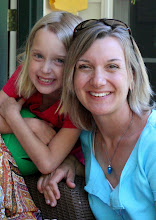Do you ever think about those individuals who are less-abled than you? At one point in the history of our society, we dubbed people as 'handicapped.' In today's world, we call individuals without 'typical' function of body or mind as disabled or essentially less-abled. Instead of calling someone a 'handicapped person,' we say, a person with a disability. You can fill in that blank with whatever medical diagnosis you want - such as autism. A child with autism vs. the previously accepted 'autistic child.' Not a diabetic man - a man with diabetes. We allow the person to be identified before the disability with our new terminology. In fact, individuals overcome extreme obstacles and show us their utter strength of spirit in so many cases. We want to give them a voice in their humanness versus in their disablity.
Who, among us, is the most less-abled? Who among us has literally no voice? I am a speech-language pathologist by training and by trade. I know children who have very little voice. But I know more children who have no voice.
Who speaks for the less-abled? Do you? Do your politicians? If you don't speak for them, good grief, what name-calling do you endure? Are you hated? Are you mocked? I mean, come on - they're less-abled, for crying out loud. We all speak for individuals with disabilities, do we not? Do we dare not? Someone must! Because they often can't. Literally, in some cases.
Yet, can the unborn? Speak for themselves? Human beings who are not yet able-bodied and do not yet have their own voice and yet have all the potential the world has to offer. How do we dare not speak up on their behalf?
Before exiting my blog and seeking shelter in less controversial posts somewhere else in the blogosphere, think about it. I like to hang out in sandy places myself. But, for this, I'm pulling my head up, getting off the beach, climbing in my boat, and I'm going wave walking.
skip to main |
skip to sidebar








About Me

- Karin @ 6ByHisDesign
- I'm a mother of 4 sweet kids who is constantly trying to improve or reinvent myself to be better than I was yesterday...or even earlier today. God's Grace gets me through the challenges facing me in this season of my life as I live my days as a stay-at-home mom supporting my husband in all his endeavors (even learning to pick up his dry cleaning) while trying not to overindulge in the common icee mocha. God Bless. Hey, FYI, Comments are turned off on the blog because I write for my family and for fun. Of course, I do love to hear from fans ;) and readers, so if you really wanna reach me, you can send me a facebook message or email me at 6byHisDesign@gmail.com!
The 2 of Us

Plus the 4 of them

= the 6 of Us

Mr T

Pookie

Meiners

Sashi

